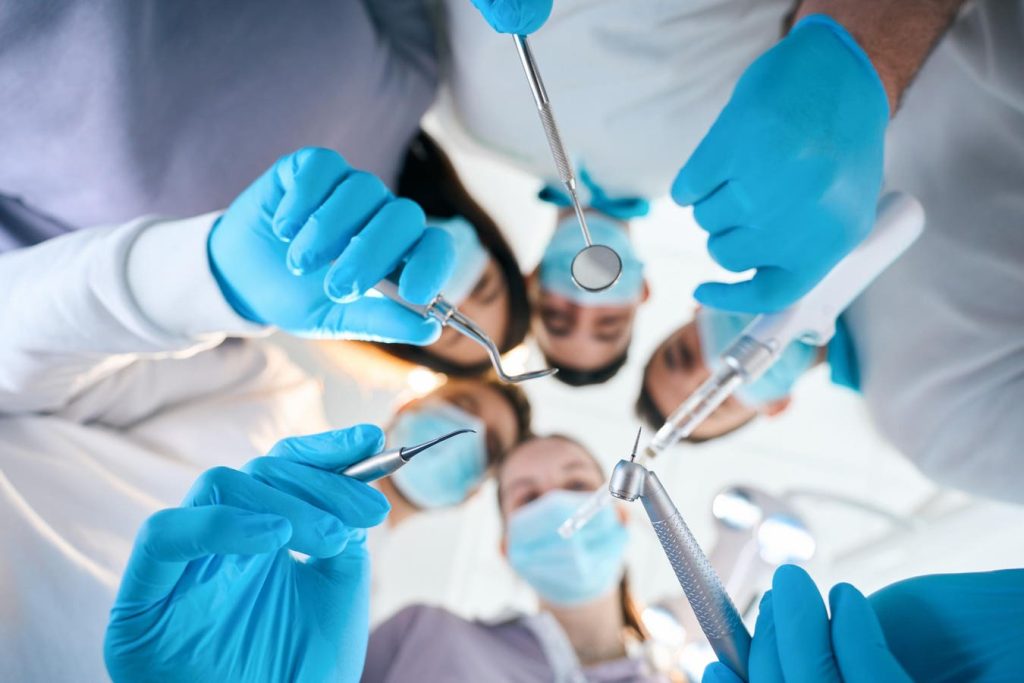AI’s Transformative Impact on Modern Dentistry
Artificial Intelligence is revolutionizing dentistry, offering solutions that range from early diagnosis to streamlined treatment planning and simplified administrative tasks. This technological evolution is saving dentists valuable time, optimizing practice operations, and ultimately delivering better outcomes for patients. Despite these clear benefits, the dental industry has been somewhat cautious in fully embracing AI compared to other medical fields. This hesitation stems from legitimate concerns including implementation costs, complex regulatory requirements, and integration challenges with existing systems. While Dental Service Organizations (DSOs) have expanded significantly in the U.S.—now operating over 8,000 clinics and representing 7% of all dental practices—the predominance of smaller independent practices has somewhat slowed the widespread adoption of AI technologies in the field.
A watershed moment for AI in dentistry came with the recent announcement that Trust AI—nicknamed the ‘ChatGPT for dentists’—secured $6 million in seed funding, the largest such investment ever for a dental technology startup. What makes this development particularly significant is that the funding was led by dental industry leaders themselves rather than traditional venture capitalists, indicating strong internal recognition of AI’s potential value to the profession. Developed collaboratively by AI engineers and board-certified periodontists, the Trust AI platform provides general practitioners with real-time access to specialist-level insights and is rapidly becoming the operational backbone of modern dental practices. The platform’s rapid adoption—attracting over 3,000 dentists in just weeks—demonstrates the industry’s growing appetite for comprehensive AI solutions. Dr. Divian Patel, Trust AI’s cofounder and a general dentist, emphasizes that forward-thinking practices aren’t seeking isolated technology solutions but rather integrated systems that connect all aspects of patient care: “Clinicians want a single intelligent system that integrates everything: patient history, risk assessment, treatment planning, SOAP notes, coding, claims, and communication.” The platform goes beyond merely detecting issues to reshaping case acceptance through patient-friendly visuals, predicting no-shows and treatment outcomes, generating real-time notes, and enhancing specialist capabilities across various dental disciplines.
The United Kingdom is experiencing similar patterns of AI adoption according to Dr. Sam Jethwa, President of the British Academy of Cosmetic Dentistry and founder of Bespoke Smile. He notes that larger corporate practices and innovative independent clinics have begun integrating AI into their operations over the past six months, while smaller independent practices are expected to follow at a slower pace—likely due to differences in ownership demographics and varying levels of technological embrace. Across the UK, dental practices are typically leveraging AI for enhanced disease detection through advanced radiograph interpretation, comprehensive treatment planning, cosmetic design visualization, risk prediction, and patient record management. Perhaps most importantly, AI is improving patient communication by helping individuals better understand their diagnoses and proposed treatment plans through enhanced visual tools and simplified explanations.
Dr. David Hickey’s experience at Southport Road Dental in the UK provides an instructive case study of AI implementation in a growing practice. Since taking over this small community-based operation in 2010 with his wife Rashmi, they’ve transformed it into a modern multi-surgery dental center with an extensive professional team serving thousands of active patients. Dr. Hickey first introduced AI in 2023 through ChatGPT, initially focusing on creating patient-friendly treatment summaries, educational content, and marketing materials. He has since expanded AI applications to include marketing strategy development, website optimization, and drafting patient communications. In clinical operations, AI helps prequalify patients through tailored questionnaires, creates personalized treatment proposals, and manages follow-up communications. The practice now employs specialized AI applications including DigitalTCO for converting voice recordings into comprehensive clinical notes, Diagnocat for radiographic analysis, and Smilecloud for visualizing potential smile improvements. While acknowledging that AI outputs still require professional verification, Dr. Hickey estimates significant time savings of 30-40% for administrative tasks. The practice has implemented formal training programs for staff on effective AI utilization, accuracy verification, maintaining consistent communication style, and proper handling of patient data. Looking ahead, Dr. Hickey plans to integrate AI into their telephone and booking systems to further streamline operations while enhancing patient convenience.
Despite the clear benefits, dental professionals maintain a measured approach to AI adoption, acknowledging several ethical considerations. Concerns include potential over-reliance on technology and safeguarding patient privacy and confidentiality. The industry widely upholds the principle that AI should function solely as a supportive tool for dental professionals rather than a replacement. Dr. Jethwa emphasizes that the human element remains irreplaceable, particularly in cosmetic dentistry where practitioner-patient rapport significantly influences outcomes: “Cosmetic dentistry can have an emotional impact on the patient; therefore, empathy and patience are just as important as clinical skills.” This human connection extends to general dentistry as well, where personal interaction often proves essential in alleviating patient anxiety. He further asserts that dental professionals must maintain confidence in their clinical judgment and use AI as an enhancement rather than a replacement for their expertise and decision-making.
For dental practitioners who are simultaneously clinicians, entrepreneurs, and curators of patient experiences, AI offers a competitive advantage through consistency and efficiency. As Dr. Patel observes, “AI delivers that consistency without replacing the human touch. Automating the repetitive tasks frees dental teams to look patients in the eye and focus on building trust.” The transformative potential is particularly significant for independent practices, essentially democratizing advanced capabilities that were previously available primarily to larger organizations. Dentists using Trust AI report reclaiming six to eight hours weekly—time that can be reinvested in strengthening profitability, enhancing reputation, and deepening patient relationships. This suggests that AI in dentistry isn’t merely driving operational efficiency but is increasingly becoming an essential competitive advantage that preserves and potentially enhances the crucial human dimension of dental care. As the technology continues to mature and integrate more seamlessly into practice workflows, it promises to further reshape the landscape of modern dentistry—benefiting practitioners and patients alike.















